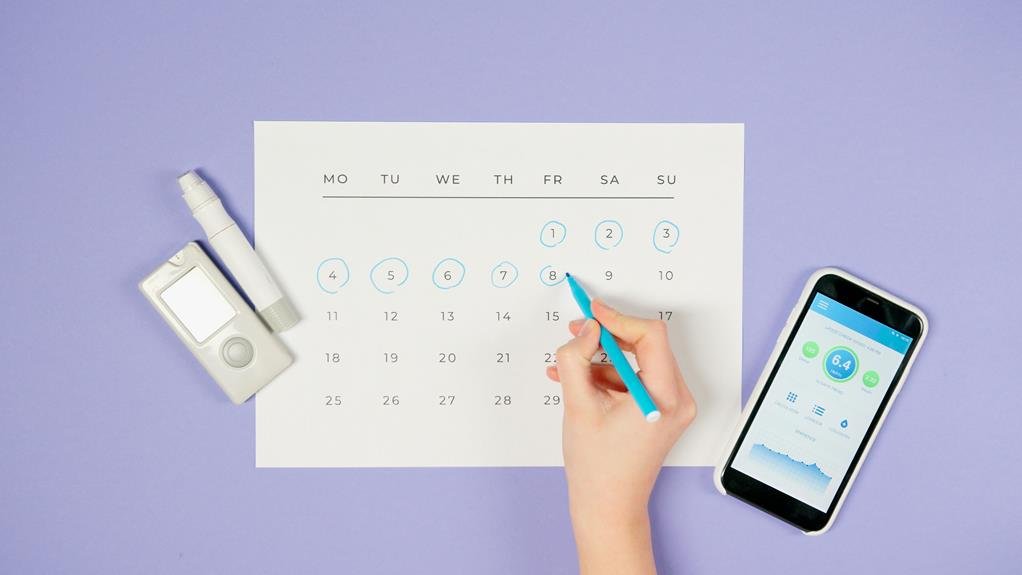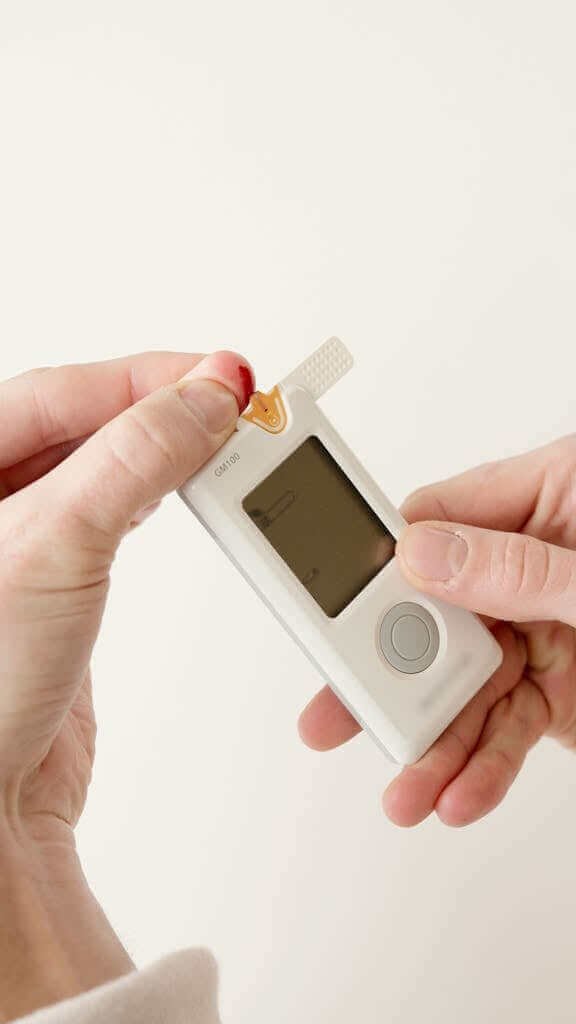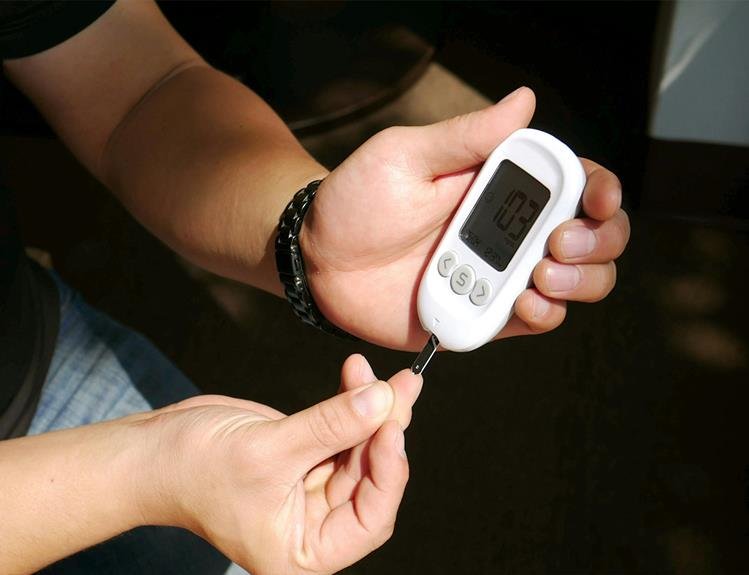How to Manage Pain From Diabetes Neuropathy
Are you tired of letting diabetes neuropathy pain control your life? Managing this type of pain can be challenging, but there are effective strategies that can provide relief and improve your quality of life.
From lifestyle adjustments and medications to physical therapy and alternative therapies, a comprehensive approach can help you find the best way to alleviate your discomfort.
By exploring various methods and understanding how to prevent exacerbation of neuropathy pain, you can take steps towards a more comfortable and fulfilling life.
Understanding Diabetes Neuropathy Pain
If you have diabetes neuropathy, understanding the nature of the pain you experience is crucial for effective management. Diabetes neuropathy pain can manifest in various ways, such as sharp, shooting pains; burning or tingling sensations; or even numbness in the affected areas. It's essential to pay close attention to these sensations to better communicate with your healthcare provider about the type and intensity of pain you're experiencing.
The pain from diabetes neuropathy is often chronic and can significantly impact your quality of life. It may vary in intensity throughout the day, affecting your ability to perform daily tasks or interfering with your sleep. By understanding the specific characteristics of your pain, you can work with your healthcare team to develop a personalized pain management plan that addresses your unique needs.
Being aware of how diabetes neuropathy pain presents itself in your body empowers you to take an active role in managing your symptoms. This understanding enables you to make informed decisions about treatment options and lifestyle modifications that can help alleviate discomfort and improve your overall well-being.
Lifestyle Modifications for Pain Management
To effectively manage pain from diabetes neuropathy, incorporating lifestyle modifications can greatly improve your overall comfort and quality of life. Regular exercise, such as walking or swimming, can help improve circulation and reduce neuropathic pain. Maintaining a healthy weight through a balanced diet can also alleviate pressure on your nerves and minimize discomfort. Additionally, quitting smoking and moderating alcohol consumption can have a positive impact on your nerve health and pain levels.
Managing stress through relaxation techniques like deep breathing, meditation, or yoga can help lower your perception of pain. Ensuring you get an adequate amount of sleep each night is crucial, as poor sleep can exacerbate neuropathic pain. Wearing comfortable shoes and practicing good foot care can prevent further damage to your nerves and alleviate existing pain.
Lastly, staying hydrated and consuming a balanced diet rich in fruits, vegetables, and whole grains can provide essential nutrients that support nerve function and pain management. By incorporating these lifestyle modifications, you can better manage pain from diabetes neuropathy and improve your overall well-being.
Medications for Neuropathic Pain
In managing pain from diabetes neuropathy, incorporating lifestyle modifications can be effective, and for more targeted relief, exploring medications for neuropathic pain is crucial. Medications play a vital role in managing neuropathic pain by targeting specific pathways involved in transmitting pain signals.
The most commonly prescribed medications for neuropathic pain include anticonvulsants, such as gabapentin and pregabalin, which help in reducing nerve pain sensations. Another class of medications, tricyclic antidepressants like amitriptyline, can also be effective in managing neuropathic pain by altering the way the brain perceives pain signals.
Furthermore, serotonin-norepinephrine reuptake inhibitors (SNRIs) like duloxetine are often used to alleviate neuropathic pain by increasing the levels of certain neurotransmitters in the brain. In cases where pain is severe and doesn't respond well to other medications, opioids may be considered, but they're typically used cautiously due to their potential for addiction and side effects.
It's essential to work closely with your healthcare provider to determine the most suitable medication and dosage for your neuropathic pain to effectively manage symptoms and improve quality of life.
Physical Therapy and Exercise Recommendations
Exploring tailored physical therapy routines and exercise recommendations can significantly enhance your management of diabetes neuropathy-related pain. Physical therapy plays a crucial role in improving flexibility, strength, and overall function, which can help alleviate discomfort caused by neuropathy. A certified physical therapist can create a personalized plan focusing on exercises that target affected areas, such as low-impact aerobics, stretching, and balance exercises. These routines not only assist in pain management but also contribute to better blood circulation and nerve health.
Incorporating regular exercise into your routine is equally vital. Activities like walking, swimming, or cycling can boost your overall well-being and alleviate neuropathic pain by promoting blood flow and releasing endorphins, the body's natural painkillers. Remember to start slow and gradually increase intensity to prevent injury. Consistency is key, so aim for at least 30 minutes of moderate exercise most days of the week.
Alternative Therapies and Complementary Treatments
Tailoring alternative therapies and complementary treatments to manage diabetes neuropathy can provide additional avenues for pain relief and improved quality of life. While traditional medical treatments play a crucial role, alternative therapies can offer a holistic approach to managing neuropathic pain.
Techniques such as acupuncture, massage therapy, and chiropractic care have shown promise in alleviating discomfort associated with diabetes neuropathy. Acupuncture, for example, targets specific points on the body to help reduce pain signals and promote relaxation. Massage therapy can improve circulation and reduce muscle tension, leading to decreased pain levels. Chiropractic care focuses on spinal adjustments to enhance nerve function and alleviate neuropathic symptoms.
Additionally, supplements like alpha-lipoic acid and evening primrose oil may help manage neuropathy pain. It's essential to consult with healthcare professionals before incorporating alternative therapies to ensure they complement your current treatment plan effectively.
Tips for Preventing Neuropathy Pain Exacerbation
To prevent exacerbation of neuropathy pain, focus on implementing lifestyle adjustments and incorporating proactive pain management strategies. Consistent monitoring of blood sugar levels is crucial in managing neuropathy pain. Keep your blood sugar levels within the target range recommended by your healthcare provider to prevent further nerve damage.
Maintaining a healthy diet rich in fruits, vegetables, whole grains, and lean proteins can help control blood sugar levels and reduce inflammation, potentially alleviating neuropathic pain.
Regular physical activity is essential for managing diabetes neuropathy pain. Engage in low-impact exercises such as walking, swimming, or cycling to improve circulation, reduce pain, and maintain a healthy weight. Avoid smoking and limit alcohol consumption, as these habits can worsen neuropathic symptoms.
Proper foot care is also vital in preventing complications that can lead to increased pain. Check your feet daily for any cuts, sores, or injuries, and wear comfortable shoes to protect your feet from further damage. By incorporating these lifestyle adjustments and proactive pain management strategies, you can effectively prevent the exacerbation of neuropathy pain.
Frequently Asked Questions
Are There Any Specific Dietary Changes or Supplements That Can Help Alleviate Pain From Diabetes Neuropathy?
To ease diabetes neuropathy pain, focus on a balanced diet with a variety of nutrients. Consider supplements like alpha-lipoic acid or B vitamins after consulting your healthcare provider. Prioritize healthy eating habits and keep a food diary.
Can Stress Management Techniques, Such as Meditation or Yoga, Be Effective in Reducing Neuropathic Pain Symptoms?
Embrace the power of meditation and yoga to ease neuropathic pain. These stress management techniques can help reduce symptoms by promoting relaxation and improving overall well-being. Give them a try for some relief.
How Often Should I Be Monitoring My Blood Sugar Levels to Help Manage Neuropathy Pain?
Monitor your blood sugar levels regularly to manage neuropathy pain effectively. Consistent monitoring helps you understand how your levels fluctuate and allows for timely adjustments in your treatment plan to alleviate symptoms and improve overall health.
Are There Any Specific Footwear Recommendations to Help With Neuropathy Pain in the Feet?
When dealing with neuropathy pain in your feet, consider wearing properly fitting shoes with ample support and cushioning. Look for styles that protect your feet from pressure points and reduce friction to lessen discomfort.
Is It Safe to Try Acupuncture or Other Forms of Traditional Chinese Medicine for Neuropathic Pain Relief?
When it comes to seeking relief for neuropathic pain, you might want to consider acupuncture or other traditional Chinese medicine practices. Some people swear by their effectiveness, so why not give it a try?
Conclusion
Overall, managing pain from diabetes neuropathy requires a combination of lifestyle changes, medications, physical therapy, and alternative therapies.
By staying active, taking prescribed medications, and incorporating relaxation techniques, individuals can alleviate neuropathic pain.
For example, Sarah, a 55-year-old with diabetes neuropathy, found relief through regular exercise, acupuncture, and mindfulness meditation.
With dedication and a comprehensive approach, it's possible to effectively manage neuropathy pain and improve quality of life.



